PLOT: The story centers on an English aristocrat, Lady Sarah Ashley, who travels halfway across the world to confront her wayward husband and sell an unusual asset: a million-acre cattle ranch in the Australian Outback called ‘Faraway Downs’. Following the death of her husband, a ruthless Australian cattle baron, King Carney, plots to take her land and she reluctantly joins forces with a rough-hewn cattle drover to protect her ranch. The sweeping adventure romance is explored through the eyes of young Nullah, a bi-racial Indigenous Australian child caught up in the government’s draconian racial policy now referred to as the “Stolen Generations.” Together the trio experiences four life-altering years, a love affair between Lady Ashley and the Drover, and the unavoidable impact of World War II on Northern Australia.
REVIEW: Baz Luhrmann‘s films have always defied filmmaking norms. From Romeo + Juliet to Elvis, Moulin Rouge to The Great Gatsby, Luhrmann’s sumptuous and anachronistic projects have been throwbacks to Hollywood’s golden age while embracing pop culture’s kinetic elements. The director made an epic ode to his homeland in 2008 with Australia, a film boasting massive star power in Nicole Kidman and Hugh Jackman and a $130 million budget. Despite mixed reviews, the almost three-hour Australia managed to garner $211 million at the global box office but then faded away. Now, a decade and a half later, Luhrmann has expanded his original film into a six-episode limited series that alters the framework of Australia into the newly titled Faraway Downs. Subtitled in the opening credits as “A Baz Lurhmann Film Told In 6 Chapters” and clocking in at an hour of additional footage, Faraway Downs is more than a director’s cut of Australia and serves as a completely distinct vision of the story with a different focus, tone, and message.
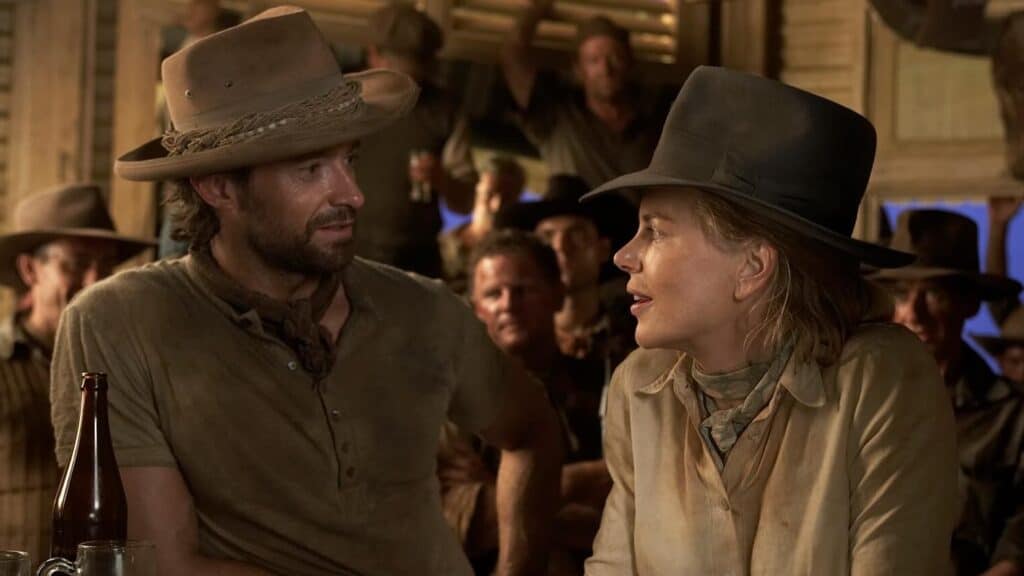
Our original review of Australia was favorable when we first saw it in 2008, but we called out the old-timey style of the film that did not seem to resonate with Baz Luhrmann’s fans like his other films. His least financially successful, Australia, has not enjoyed as much success over the years. Still, when Luhrmann realized during the COVID-19 shutdown on Elvis that he could expand on his original vision, Faraway Downs was born. Aside from the added footage, Faraway Downs boasts an all-new score by Kara Talvee for Bleeding Fingers Music with additional music by Felix Meagher, Angela Little, and Luhrmann, title sequences created by Waringarri Aboriginal Arts with a theme song by Budjerah and Matt Corby, and a recentered narrative focused on young Nullah (Brandon Walters), the mixed-race child who connects Lady Sarah Ashley (Nicole Kidman) and The Drover (Hugh Jackman). This shift gives the story much more breathing room to develop characters whose arcs felt compressed even in the original feature film cut. The reordered narrative still looks and feels like a Baz Luhrmann film, but Australia’s kinetic pacing has slowed down significantly.
Faraway Downs consists of six chapters ranging in duration from as short as twenty-five minutes to as long as fifty. The full series clocks in at three hours and forty-four minutes compared to Australia’s two hours and forty-five minutes. The extended sequences spend significantly more time with the Aboriginal characters, expanding on the real-life ethnic tragedy, The Stolen Generations. This forced abduction of native and mixed-race Aboriginal children to be trained to work in white society was a key element of Australia, factoring into the opening crawl as well as a warning message before the titles. Here, the story is significantly expanded as well as accenting The Drover’s relationship with his brother-in-law, Magarri (David Ngoombujarra), the perception of King George (David Gulpilil), and the actions of Neil Fletcher (David Wenham). This does not alter the romantic elements of the story as Nicole Kidman and Hugh Jackman still share excellent chemistry, emulating iconic big-screen romances ranging from Out of Africa to Casablanca as their courtship follows the evolving conflict of World War II in the South Pacific.
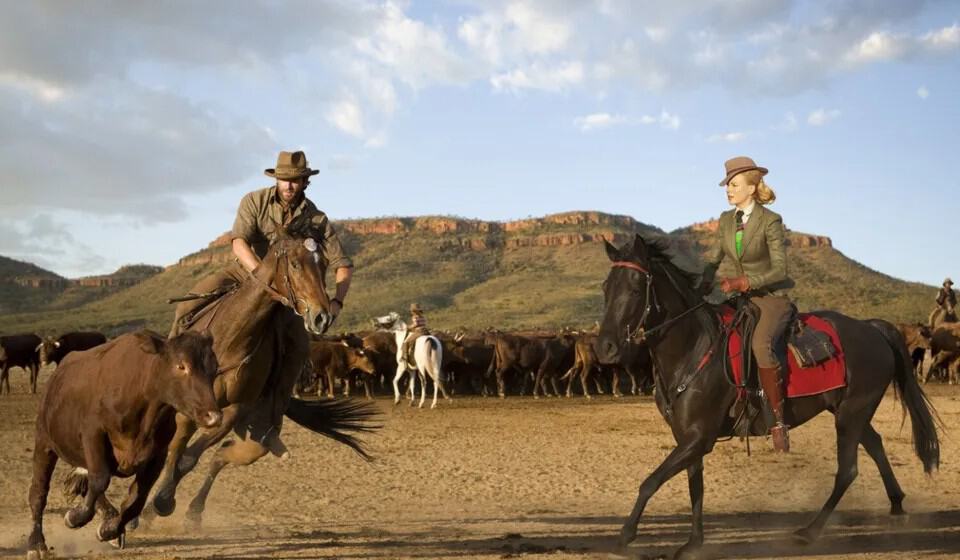
While Australia opened with voice-over narration from Nullah, the reframing of Faraway Downs around the young character alters the experience of the series significantly. The shift also changes the narrative arc for Lady Ashley as well. Nicole Kidman garnered acclaim for her performance in Baz Luhrmann’s Moulin Rouge, and here, her character was overdramatic and a throwback to silver screen actresses of the early 20th century. The revisions in Faraway Downs put more control in the hands of Kidman’s character and make her not only less reliant on the romantic results of her courtship with The Drover but also turn Jackman’s role into more of a supporting performance. Luhrmann also changes the story’s ending in a way that fans of Australia will not see coming. This new ending shifts everything about the film’s final act, even though only one key scene has been replaced. This alteration sets Faraway Downs apart from Australia and allows Baz Lurhmann to present two wholly different cinematic experiences.
Baz Luhrmann’s filmmaking style has never been easily compared to anyone else, and yet here, his direction feels more constrained than it did on the big screen version of the same production. Australia had bright, technicolor landscapes that turned some sequences into over-the-top and unrealistic. There is a bit more of a muted look to Faraway Downs that is complemented by the new score. There is also much more time spent with the cast, many of whom I forgot were even in Australia. Now, we get additional time with Ben Mendelsohn and Essie Davis, two actors who have found much more success in the years since this film first debuted. The Aboriginal actors also get much more screen time, and Luhrmann’s dedication to telling their story in an authentic way while also chronicling the World War II travesties in Darwin forges a powerful and epic film that is both series and movie at the same time. But, I feel that Faraway Downs works better consumed episodically as it allows the viewer time to digest the characters and events in a way that a single three-hour-plus film would struggle to achieve.
Part director’s cut and part reimagining, Faraway Downs feels much different than Australia. The extra time and episodic breakdown affords Baz Luhrmann much more space to tell the story how he meant it to be told. The melodramatic romance and stark war story are still key to this tale. Still, by anchoring the narrative on Nullah and the travesty of The Stolen Generations, Faraway Downs becomes much more than before. While Luhrmann has toyed with episodic storytelling once before (the short-lived Netflix series The Get Down), Faraway Downs proves that the director’s signature style may be right at home on the small screen in the extended canvas of limited and ongoing series. I enjoyed this version of the tale far more than I did when I saw the original, and I look forward to seeing what this revision will prompt other filmmakers to do with their excised footage and passion projects.
Faraway Downs premieres on November 26th on Hulu.


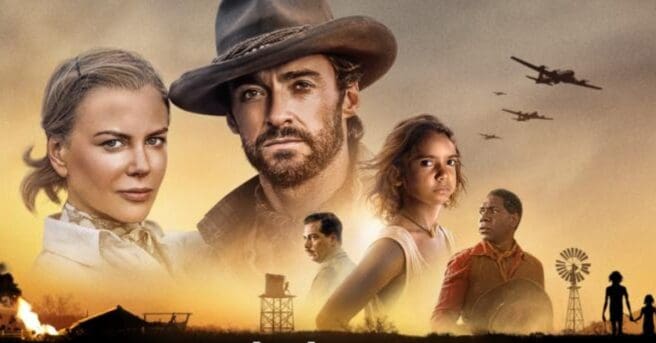




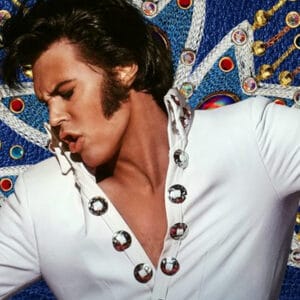
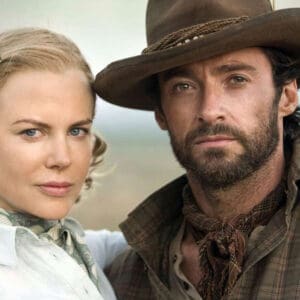
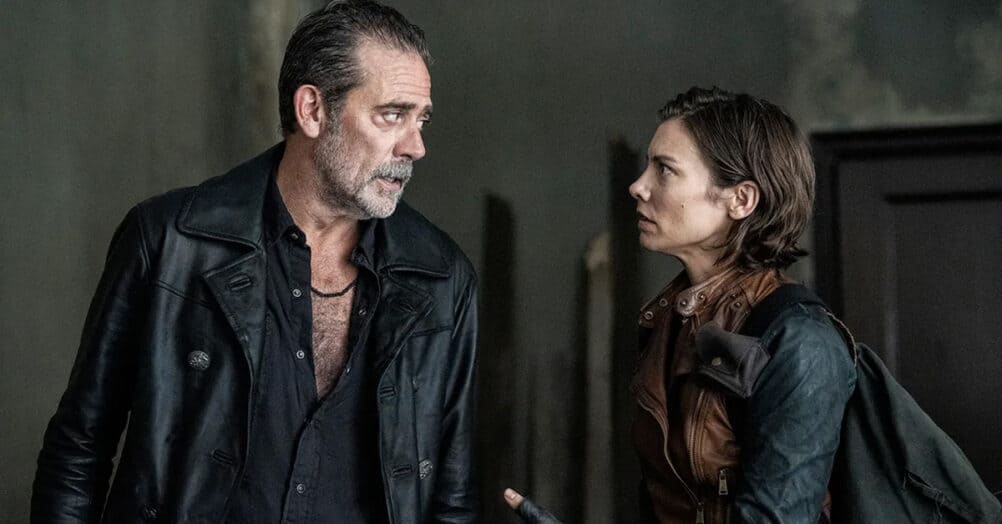









Follow the JOBLO MOVIE NETWORK
Follow us on YOUTUBE
Follow ARROW IN THE HEAD
Follow AITH on YOUTUBE